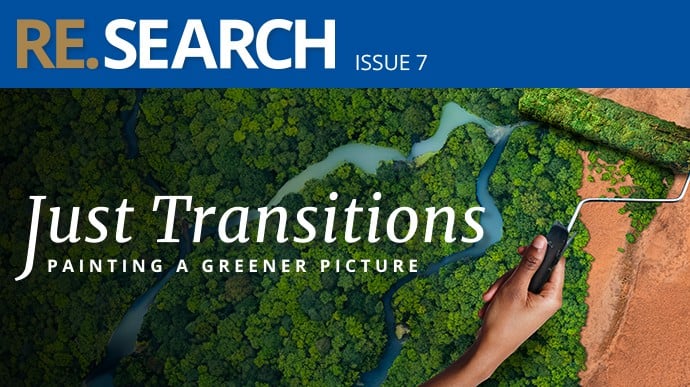The recent verdict by the Court of Arbitration for Sport (CAS), who rejected Caster Semenya’s challenge against the International Associations of Athletics Federations (IAAF) rules forcing her to lower her testosterone levels in order to compete internationally, has been described as an injustice to female athletes. There are several medical and ethical concerns arising from the IAAF ruling: The first of these concerns is whether discrimination on the basis of an inherent human characteristic is a necessary and justifiable consideration when individual access to participation in a specified activity is decided.
The second concern arises from the institutionalisation of IAAF recommended measures by which individual athletes are expected to manipulate inherent biological characteristics in order to conform to standards that the IAAF has deemed necessary for participation. The matter of individual privacy is also important. There should be no obligation on anyone to disclose information about one’s self. It is understood that those seeking to enter a socially organised competitive event may be required to reveal aspects of themselves that others who decline such opportunities would wish to keep private.
For example, boxers will reveal the “story of the tape” which describes their physique whilst others would most definitely not wish to have their weight and abdominal girth published in the public domain. Notably, however, those asked to disclose information about themselves are treated equally in the sense that all such individuals seeking to participate in the same event are expected to accept the same level of disclosure. If the requirement for IAAF competitions requires that genotype, phenotype and endocrine profile become a matter of public record in order to gain access to sponsored competitions, then this criterion must apply to all similar competitors and must be seen to apply in exactly this fashion. Anything less would be a matter of discrimination.
The long- and short-term implications of hormone screening and replacement deemed necessary for eligibility to participate in sporting events must be carefully considered. The bioethical principles of beneficence, non-maleficence and respect for autonomy should be applied when making medical decisions, and screening may detect previously undiagnosed disorders of sex development (DSD) in young athletes, necessitating further medical investigation and care. Unfortunately, several elite female athletes from track events are from developing countries, where appropriate medical support is lacking.
The IAAF must therefore ensure that athletes are provided with the counselling, medical support and resources that would be required should they persist with their ruling and such a diagnosis is made as a result of its screening process. The traditional aim of hormone therapy for individuals with DSD is to improve general physiological health and well-being, long-term outcome and focus on development of sexual anatomy. Irrespective of aim, hormonal manipulation is associated with both risk and benefit, while evidence of successfully reaching therapeutic goals remains largely absent. Athletes subjected to hormone replacement for non-medical indications must be fully informed of long-term risks and be monitored for possible adverse effects.
The World Medical Association (WMA) has urged doctors not to enforce the IAAF rules, warning that attempts to do so would breach ethical codes. WMA chairperson Dr Frank Ulrich said: “We do think it is extremely serious if international sports regulations demand physicians to prescribe medication – hormonally active medication – for athletes in order to reduce normal conditions in their body.”
The United Nations has described the IAAF ruling as unnecessary, humiliating and harmful. Several local organisations such as the South African Medical Association, The Steve Biko Centre for Bioethics, and the South African Society for Obstetricians and Gynaecologists are calling on civil society and other organisations to stand up against global injustice in sport. South Africans are being urged to stand by Caster Semenya as she appeals the decision by the CAS.
Semenya is a true South African icon. She is admired for her resilience, determination and hard work – all of which have made her a true winner. With our support, she will once again rise above and continue to inspire women and athletes in South Africa and around the world.
Professor Priya Soma-Pillay and Professor John Anthony (UCT)
May 28, 2019

Professor Priya Soma-Pillay of the University of Pretoria’s (UP) Department of Obstetrics and Gynaecology is a maternal and foetal sub-specialist with a special interest in high-risk pregnancies and maternal morbidity and mortality. She began her research when she joined UP as a registrar in 2001 and completed two research projects during her registrar training.
Prof Soma-Pillay says that both the University and the department have created an environment that is conducive to research, and regards herself as fortunate for having had mentors who encouraged and guided her during her career. A personal highlight was the completion of her PhD in 2018.
More recently, her research has focused on maternal health following pregnancies complicated by severe morbidity. Identifying these women and ensuring that they lead a healthy lifestyle is important, she says, as 30% of them will develop long-term chronic disease if their conditions aren’t managed. Prof Soma-Pillay’s research aims to reduce maternal and perinatal morbidity and mortality. She also hopes to reduce maternal morbidity and mortality caused by hypertension in pregnancy.
“A pregnant woman’s health affects the health of her offspring,” explains Prof Soma-Pillay. “Therefore, it is important for women to lead healthy lifestyles, as this does not only impact on their own health but also the health of their children and future generations.”
Prof Soma-Pillay is a member of the PRIME research group, which is a collaboration between the Universities of Pretoria and Cape Town and Sheffield University in the UK. The group evaluates the causes and prevention of preterm birth, which is an important cause of perinatal morbidity and mortality. She is also a member of the UP-South African Medical Research Council’s Research Centre for Maternal, Fetal, Newborn and Child Healthcare Strategies.
Prof Soma-Pillay singles out Prof Bob Pattinson as having inspired her in her research efforts. “He has the unique ability to extract critical information from research data that may not be obvious to others,” she says. Prof Pattinson is a colleague in the department who recently retired as Director of the research centre, but who is still actively doing research. Her academic role model is Prof Catherine Nelson-Piercy, an obstetric physician in the UK.
Her advice to school learners or undergraduates interested in her field is to “find a career or interest that you are passionate about and try to be the best in that field of work”.
Prof Soma-Pillay is a runner who often goes on weekday morning runs. She has completed two Comrades marathons.
 Story
Story
In a study that signals potential reproductive and health complications in humans, now and for future generations, researchers at the University of Pretoria and Canada’s McGill University and Université Laval have concluded that toxins in the environment, notably DDT, modify the sperm epigenome at sites potentially transmitted to the embryo at conception.
 Story
Story
This edition explores the theme of ‘Just Transitions’ which is generally characterised by ideas of sustainability and the greening of the economy, and supported by the ideas of resistance, rethinking and restructuring society for a better and more equitable future. As one of the most impactful producers of research in South Africa, UP has several specialised research teams that are on the...
 Story
Story
New research arising from a collaboration between scientists at the University of Pretoria (UP) and Trinity College Dublin has shown there are likely more warm-bodied sharks out there than previously thought.
Copyright © University of Pretoria 2024. All rights reserved.
Get Social With Us
Download the UP Mobile App